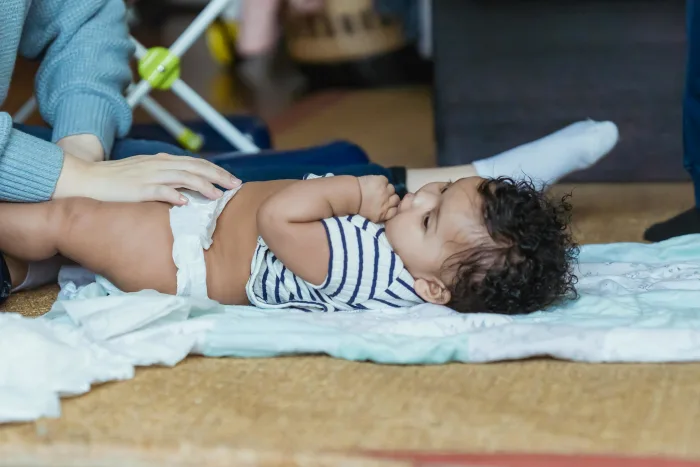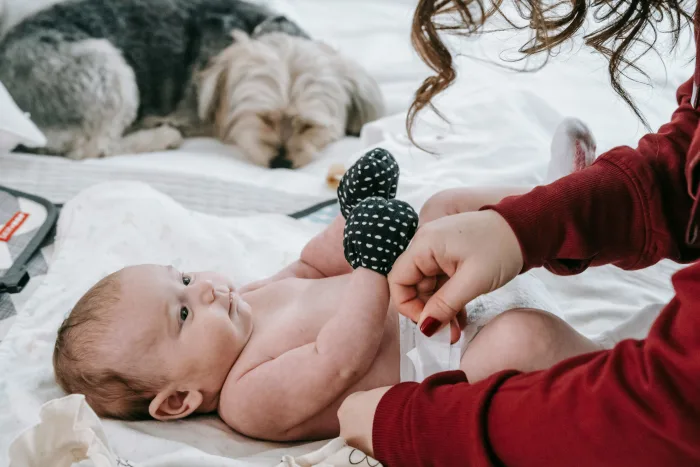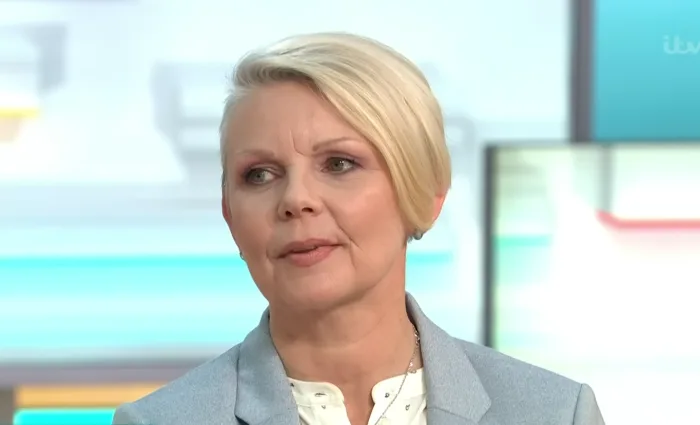Note: we are republishing this story which originally made the news in May 2018.
A storm of criticism has descended upon author and educator Deanne Carson following her suggestion that parents should seek consent from babies before changing their diapers, sparking a debate that has divided opinion.

Carson’s comments, aired on ABC News, advocated for what she termed a “culture of consent” within households, urging parents to verbally seek permission from newborns before initiating diaper changes. While some have applauded her efforts to promote bodily autonomy from an early age, others have derided her stance as absurd and impractical.
The segment, later featured on Sky News Australia’s “Outsiders” show, drew scathing remarks from host Rowan Dean, who characterized the idea as “leftie lunacy” and mocked the concept of seeking consent from infants. The ensuing online furor propelled Carson into the spotlight, prompting her to defend her position on social media.

In a Facebook post addressing her critics, Carson reaffirmed the importance of teaching consent to young children, citing alarming statistics on seual assault to underscore the urgency of her message. Despite her impassioned plea, Carson’s remarks have drawn both praise and condemnation from netizens, highlighting the polarizing nature of her advocacy.
While some have lauded Carson for her dedication to abuse prevention and championing children’s rights, others have lambasted her approach as excessive and outlandish. Former New South Wales Senate candidate Kirralie Smith went so far as to label Carson’s proposal as “neglect and child abuse,” arguing that it disregards the practicalities of childcare and infant hygiene.

Yet amidst the uproar, voices of support have emerged, with advocacy groups like Facts Without Frenzy rallying behind Carson’s cause. They argue that her teachings align with international best practices in abuse prevention and provide crucial guidance for parents navigating sensitive conversations with their children.
The debate has left many grappling with complex questions surrounding consent, bodily autonomy, and the role of caregivers in fostering healthy relationships with their children. While some view Carson’s recommendations as a progressive step forward, others contend that they veer dangerously close to absurdity, trivializing the gravity of issues like seual assault.

As the discourse rages on, one thing remains clear: Carson’s call for consent in childcare has ignited a firestorm of controversy that shows no signs of abating. Whether her proposals represent a groundbreaking shift in parenting norms or a misguided overreach, only time will tell. Until then, the debate rages on, fueled by impassioned voices on both sides of the aisle.
